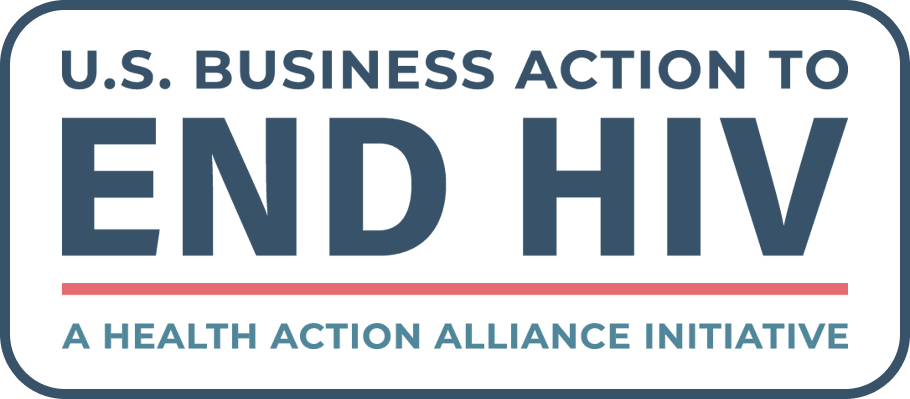
| TBD Panels | 3-Panel STD Test | 9-Panel STD Test | 5-Panel STD Test | 3 Site: Oral, Rectal, Genital |
|---|---|---|---|---|
| Chlamydia |  |  |  |  |
| Gonorrhea |  |  |  |  |
| Trichomoniasis |  |  |  | |
| HIV (Ag/Ab) |  |  | ||
| Syphilis |  |  | ||
| Hepatitis B & C |  | |||
| HSV I |  | |||
| HSV II |  |
- 8 E Charleston Blvd
- Las Vegas, NV 89104
- Tues and Fri
- 10 AM – 2PM
- Contact us:
- +1 (702) 909-0554
- hello@tbd.health

| TBD Panels | 3-Panel STD Test | 9-Panel STD Test | 5-Panel STD Test | 3 Site: Oral, Rectal, Genital |
|---|---|---|---|---|
| Chlamydia |  |  |  |  |
| Gonorrhea |  |  |  |  |
| Trichomoniasis |  |  |  | |
| HIV (Ag/Ab) |  |  | ||
| Syphilis |  |  | ||
| Hepatitis B & C |  | |||
| HSV I |  | |||
| HSV II |  |

By Kate Warrington
National Friendship Day - August 7 - is the perfect time to celebrate the people we love most.
For many of us, friendship is one of the most enriching and important parts of our lives. Our friends are the people who show up for us when we need them. They encourage us to grow and allow us to be our most authentic selves. Studies even show that having strong friendships can help us live healthier, longer lives.
While raising a glass to your bestie is 100 percent an appropriate way to celebrate (you deserve it!), National Friendship Day is also a good time to think about how we can care for and keep each other safe. After all, who better to look out for us than our partners in crime?
So, once the toasting is over, take a moment to consider these six things you can do to help each other stay safe. Or in other words, how you can be the Leslie Knope to your Ann Perkins.
Share Your Location
Technology can be both a gift and a curse, but when it comes to staying safe, we consider it a blessing. Sharing your location with your bestie is one of the top ways you can keep each other safe. And all it takes is a tap on your phone.
For iPhone users, you can easily send your location to someone via text or through the Find My app. Google Maps also allows you to share your location with friends regardless of if they have an iPhone or Android. Plus, many ridesharing apps, including Uber and Lyft, have a share feature so that you can let someone see you’ve arrived at your destination safely.
There are of course privacy concerns when it comes to sharing our location but there can also be many benefits to letting our friends see where we are. You can choose how long you wish to share your location and you always have the option to turn it off. It’s a good idea, however, to give at least one friend access to your location at all times in the case of an emergency.
Check-In With One Another
Whether you share your location or not, an easy way to keep your friends safe is to check in with each other. If you’re not already, get into a habit of texting one another when you get home from being together, whether it’s after brunch or a night out.
And don’t forget about each other’s mental health. This can also be as easy as sending a text to ask how a friend is feeling, especially if you know they’re going through a tough time.
“Text check-ins are a simple way to say you’re thinking of them and to see how they’re doing,” says Sarah McElroy, TBD Health NP. Another idea is to schedule a weekly walk and talk whether it’s in person or over the phone, she says. “Any movement at all can help with mental health and why not chat with a friend!”
Use the Buddy System Even When You’re Flying Solo
In the age of dating on the apps, it can be exciting to finally meet someone in person that you met online. But no matter how many gifs you sent or how long you chatted back and forth, it can never hurt to share your plans with your BFF before the big night out.
A good rule of thumb is to cover the four Ws: who, what, where and when. Tell a friend the name of the person you’re meeting, what time you’re meeting them, what your plans are and where you’re going. (Pro tip: always meet in public for a first date). Plan to also text or call your friend when it’s over to let them know you’re safe, and of course, to dish about how it went.
However, this doesn’t only apply to dating. It’s always a good idea to share this info with a friend if you’re going somewhere new or by yourself, such as if you’re traveling solo, viewing an apartment or running a late-night errand.
Use a Safe Word
Pineapple. Orange. Banana. What do these words have in common other than being fruit? They’re all commonly used safe words.
When you hear the term safe word, you may think of a word you’d use in the bedroom. And while that’s true and a great way to communicate consent to a partner, safe words can also help us signal danger to friends.
We’ve likely all been in a situation where something or someone felt a little off and we’ve given our friend a look or a nudge to indicate it’s time to go. Having a safe word can help you navigate these types of situations more easily. The key is that you choose a word you’ll remember and that you can text or say quickly.
Be Honest, Even If It Means Being Vulnerable
Let’s face it, we’re all dealing with a lot. Whether it’s stress from work, our relationships, our health or a mix of things. It can all add up and sometimes we wind up not feeling our best. And that’s okay.
Supporting our friends’ mental well-being is just as important as physical safety, but to do this, we have to be honest with one another about how we’re feeling. While it can be difficult to open up, even with those we’re closest to, we can support our friends by creating a safe space to be vulnerable. Sharing our experiences in this manner can also help us to better understand ourselves and each other, making our friendships even stronger.
McElroy points out, however, that we should pay attention to signs that a friend’s mental health could be worsening. “I get concerned about a friend being in danger with their mental health when they start to withdraw from once-loved activities and isolate themselves,” she says.
While we may want to do everything we can to support our friends, sometimes we also have to know our limits and recognize when professional help is needed.
Don’t Be Afraid to Tackle Taboos It should go without saying that our true friends shouldn’t judge us, but it can still be hard to talk about personal topics, especially those that carry a stigma. Talking openly, however, can make these topics less taboo and also help us to realize we’re not alone.
“Conversations about controversial topics become less so when we talk about them more often,” McElroy says. “Things like mental health treatment, counseling and getting STI testing are all things we need to talk about more because they're part of life. We can destigmatize them one conversation at a time.”
TBD Recommends: 3-Panel STD Test
Of course, it’s important to be respectful of each other’s limits when it comes to discussing sensitive topics. If a friend isn’t comfortable sharing, you can always offer to talk to them another time. Just letting them know that you’re open to the discussion can be a way to show you care.
Keeping Our Friends Safe and Our Friendships Strong
When it comes to nurturing our friendships, there are many ways we can support one another. Just think of Meredith and Cristina on Grey’s Anatomy or Issa and Molly of Insecure.
Our friendships are special and unique in their own way and that’s also what makes them beautiful and worth celebrating this National Friendship Day. Showing we care about each other’s safety and well-being will only make our bond stronger.
Email us and a team member will get back to you within 24 hours. We’re also available via call or text at +1 (702) 909-0554
Sign up below to get 10% off
By providing my email address, I agree to receive email with marketing communications from TBD Health including news, promotions and exclusive offers. I understand that I can opt out at any time by using unsubscribe links. Visit our Terms of Service or Privacy Policy for more information.








